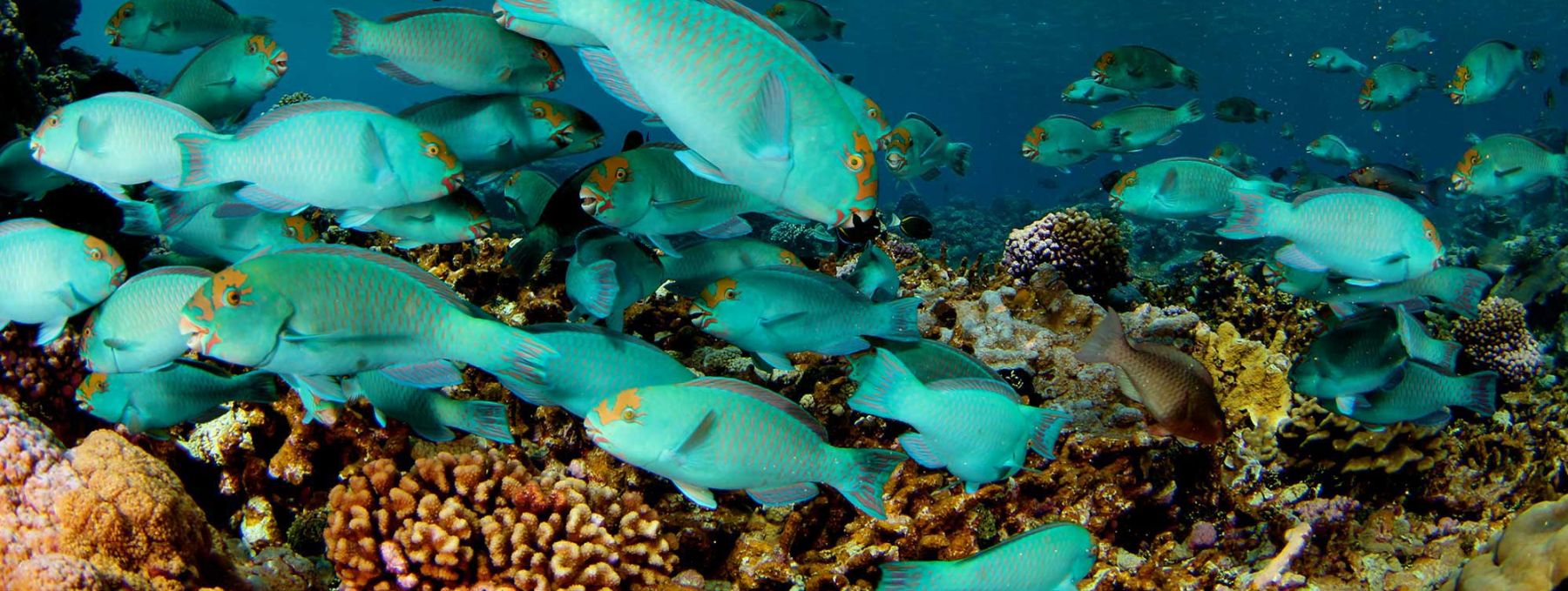UCSB is one of the few universities in the country offering an undergraduate major in aquatic biology. This major provides coursework and laboratory and field experience in both marine and freshwater sub-disciplines. UCSB is ideally located for the study of fresh and salt water environments and inhabitants. The campus' outdoor "laboratories" include the Pacific Ocean and four of the University of California's protected natural land and water reserves: the Carpinteria salt marsh, the West Campus sand dunes, Santa Cruz island in the Santa Barbara channel, and the Sierra Nevada Aquatic Research laboratory in the eastern Sierra Nevada mountain range.
The campus' Marine Science Institute (MSI) involves faculty and graduate students from six academic disciplines in worldwide research in areas such as global environmental change, biological oceanography, subtidal and intertidal ecology and polar tropical, and temperate ecosystems. MSI's core activity is investigating and managing the resources of the California coast.
The Major
Students interested in marine biology, marine and freshwater ecology, population studies of aquatic organisms, oceanography, and limnology (the study of fresh waters) find aquatic biology an exciting opportunity to learn about these broad subjects and the special techniques used to study them. All students interested in any area of the biological sciences, including Aquatic Biology, enter UCSB as pre-biological sciences majors. Pre-biology majors share a common core curriculum, typically completed during the freshman and sophomore years, consisting of introductory biology with laboratory , general chemistry with laboratory, mathematics, physics with laboratory, and for many of the majors, organic chemistry with laboratory. After completion of a subset of this key preparatory coursework, students may petition to declare the full major. The B. S. in Aquatic Biology requires completion of 48 upper-division quarter units including at least one course in genetics, ecology, physiology, and diversity and evolution. Students complete their upper-division Aquatic Biology requirements by taking a three course series on ecological processes in aquatic systems and aquatic communities, and by selecting elective courses in: marine botany, ecology, marine microbiology, coral reef and deep sea biology; biology of fishes; mariculture; invertebrate zoology; limnology; and stream biology. One additional course in a related discipline of physical or chemical oceanography or marine geology is required.
Careers in Aquatic Biology
UCSB's Aquatic Biology majors, because their education is sound, comprehensive, and unique, are in demand in both government and private industry. Aquatic Biology majors secure positions working on biological surveys and environmental impact statements. They pursue careers in the conservation of marine and other resources, gain employment with fisheries, and undertake work in areas such as aquaculture and water quality control. In addition to immediate career entry, Aquatic Biology majors are prepared for graduate study in advanced and specialized fields.
Students interested in teaching biological sciences and conducting research at the college or university level should plan to complete the PhD degree. Teaching at the junior high or high school (secondary) level requires the California single subject teaching credential. Students considering this last option should discuss their plans with the credential advisor in UCSB's Graduate School of Education early in their academic careers.
High School Preparation
Recommended as part of or in addition to the UC admission requirements
- One year of biology
- One year of chemistry
- Mathematics through trigonometry
- One year of physics
Transfer Preparation
To make normal progress in the major, complete the following courses prior to transferring to UCSB.
- One year sequence of general chemistry with laboratory
- One year sequence of general biology with laboratory
- Two terms of calculus and either a third term of calculus or one term of statistics
- One year sequence of organic chemistry with laboratory
- One year sequence of physics with laboratory
Please see the UCSB General Catalog or your high school or community college counselor for more information on course preparation.
Additional Information
For further information please consult one of the biology undergraduate academic advisors.
FAQs
- How many upper division biology courses should I take per quarter?
-
We recommend taking two upper division biology courses per quarter (assuming 8.0 units per quarter) and, if possible, fulfilling area specific requirements first starting one's Junior/3rd year. This will give you the required 48.0 units required for most of our majors. For more detailed recommendations for the MCDB majors please go to: Resource Documents: Recommended Schedule - MCDB majors.
